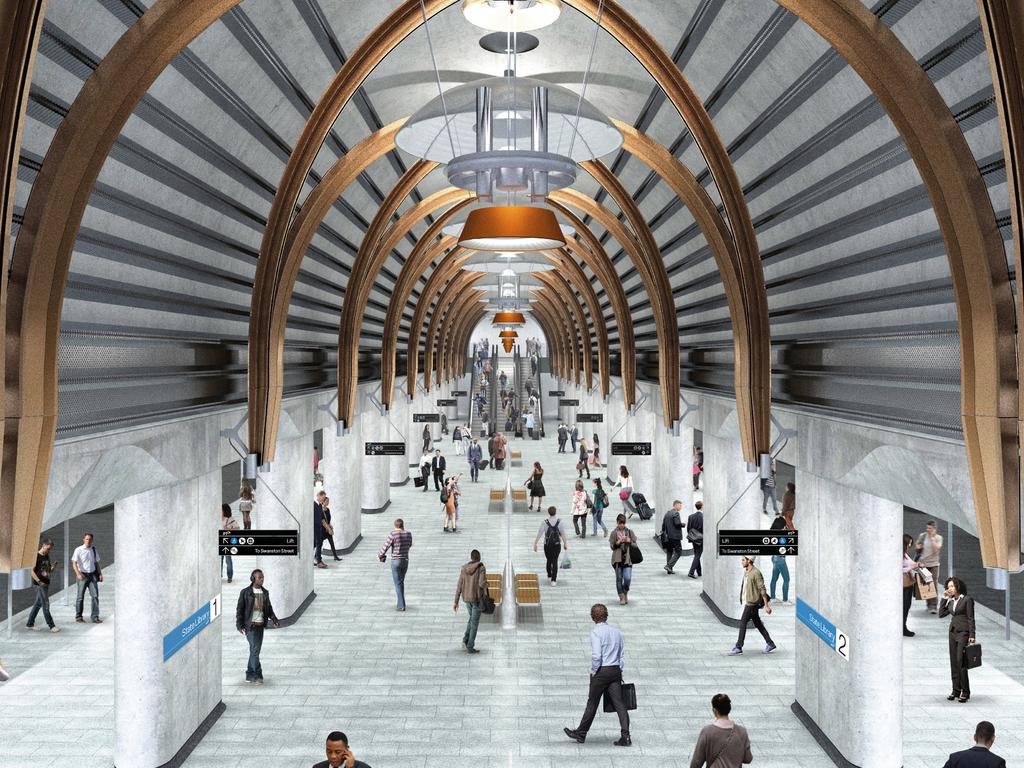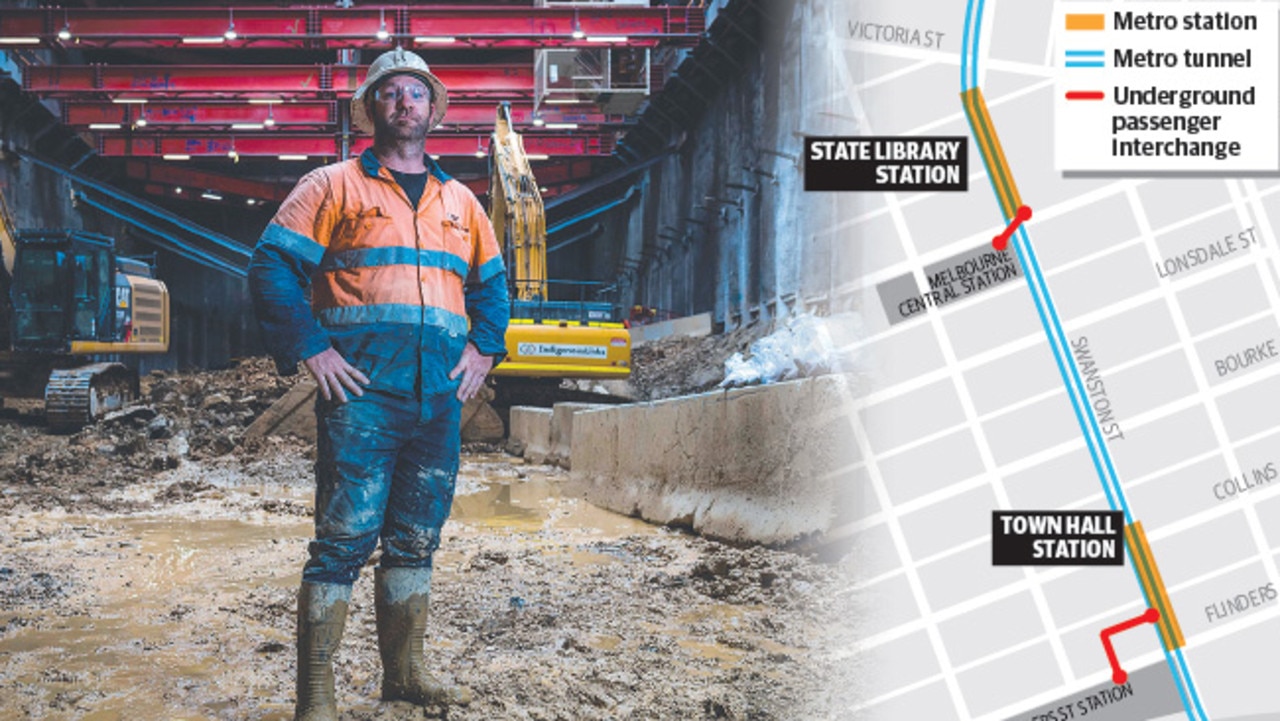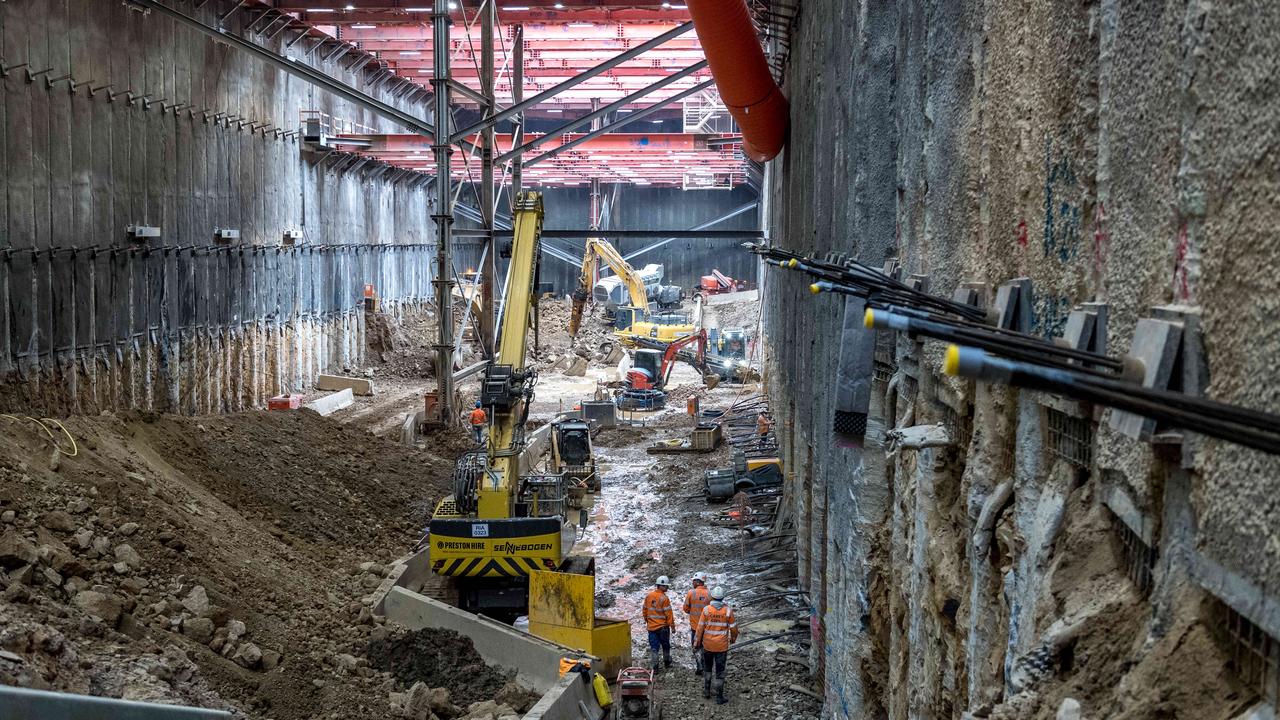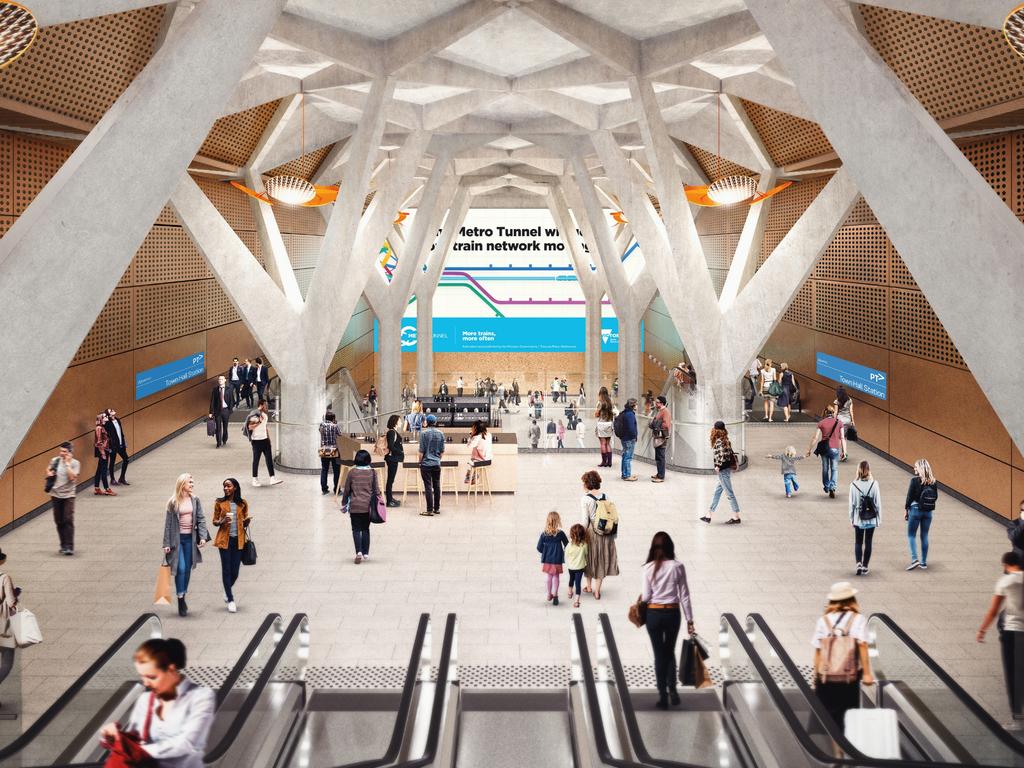Future Victoria: Underground pedestrian subways to link CBD stations, hubs
A web of underground footpaths will link key city hubs in a move that will cut pedestrian congestion on Melbourne CBD streets. Here’s where you will be able to walk on the new subways.
Future Victoria
Don't miss out on the headlines from Future Victoria. Followed categories will be added to My News.
A network of pedestrian subways built as part of the Metro Tunnel project will create an “underground city” beneath Melbourne’s CBD.
The web of underground footpaths — to link the new Town Hall and State Library stations with existing transport hubs — is expected to reduce congestion on crammed city footpaths and make transfers between services a breeze.
The government will explore whether the subterranean thoroughfares have room for shops and cafes, mirroring the experience for people travelling around other major cities including Hong Kong and Toronto.

It comes as new images reveal major progress on the Parkville end of the Metro Tunnel, with a huge hole already excavated at Grattan St.
The new Town Hall station walkway will link up to the existing Degraves St subway and is expected to reduce crowding on Flinders Street Station’s concourse.
At the State Library, the new subway will go under Swanston St to take commuters in and out of Melbourne Central.

Rail Projects Victoria chief Evan Tattersall told the Herald Sun: “The new underground stations serving the Metro Tunnel will mean seamless connections for passengers moving around the CBD and to and from the suburbs.”
“Passengers will be able to easily change between Metro Tunnel and City Loop services using underground pedestrian walkways without needing to pass through ticket gates.”

Swinburne University of Technology urban design director Dr Ian Woodcock said the walkways could effectively become “streets that don’t have cars” if designed well.
“At the moment, with the current underground stops we have, you have to be fairly close to get access them to directly … People are often walking in congested streets when they could be walking in a passageway underground,” he said.

“Congestion on our pathways in the centre of town is particularly bad in peak hour, so additional routes for people changing trains or wanting to access a train is a good thing.”
Transport Infrastructure Minister Jacinta Allan said the Metro Tunnel project would “fundamentally change the way people get around Melbourne and Victoria”.
MORE FUTURE VICTORIA NEWS:
HOW WE WILL GET AROUND MELBOURNE NEXT DECADE
HI-TECH FUTURE ROADS TO SLASH TRAVEL TIMES
HOW VICTORIAN ROADS WILL BE CHANGED FOR DRIVERLESS CARS
In Toronto, Canada’s largest city, more than 30 kilometres of underground pathways snake under the CBD, connecting 200,000 commuters every day to 75 buildings including six subway stations.
The underground network includes a 1200 restaurants, shops and services, supporting 4600 jobs and generating almost $1.9 billion in sales a year.
Dr Woodcock said Toronto’s system was the “logical conclusion” with pathways “basically like underground streets” featuring “all the things you might expect to find in a city centre”.
He said the pathways would be particularly popular during poor weather in Melbourne.


